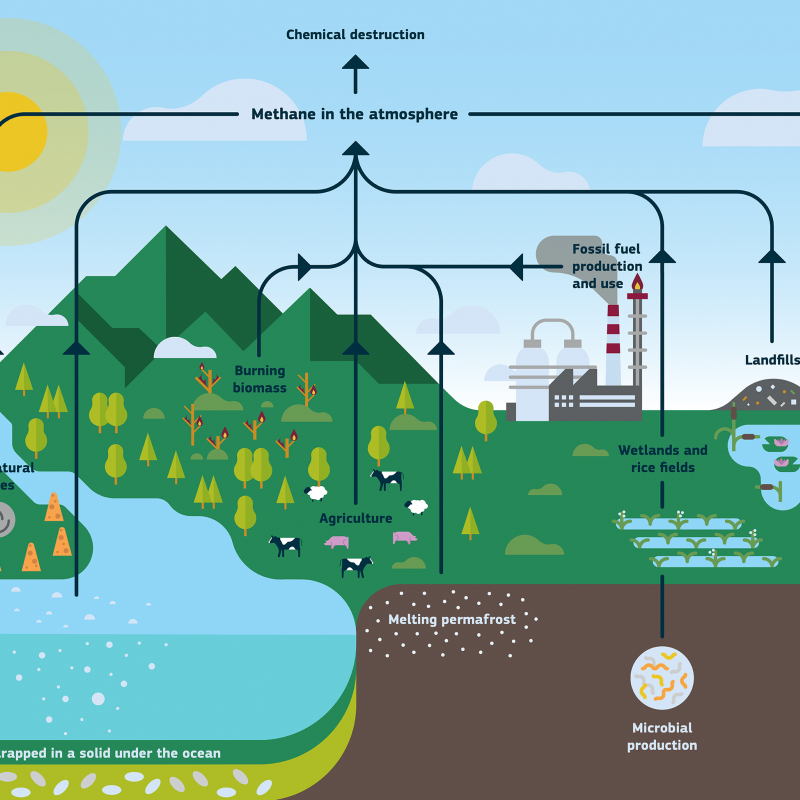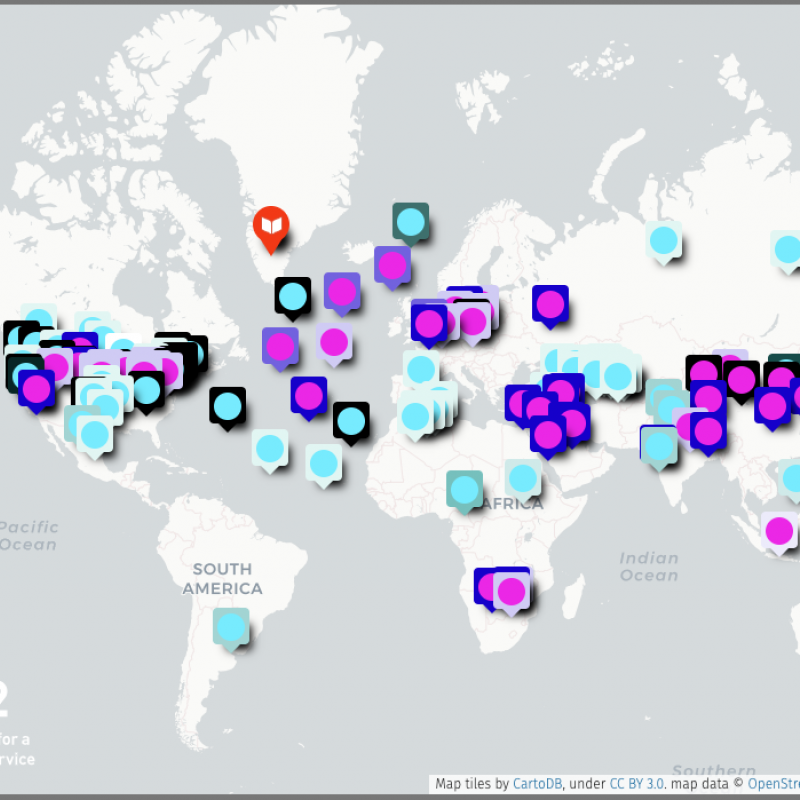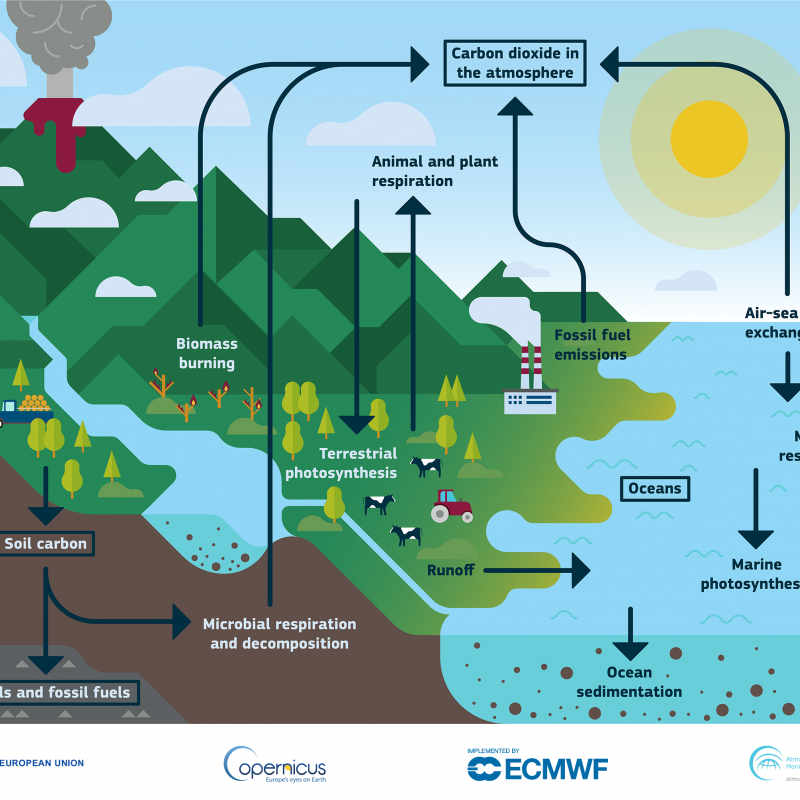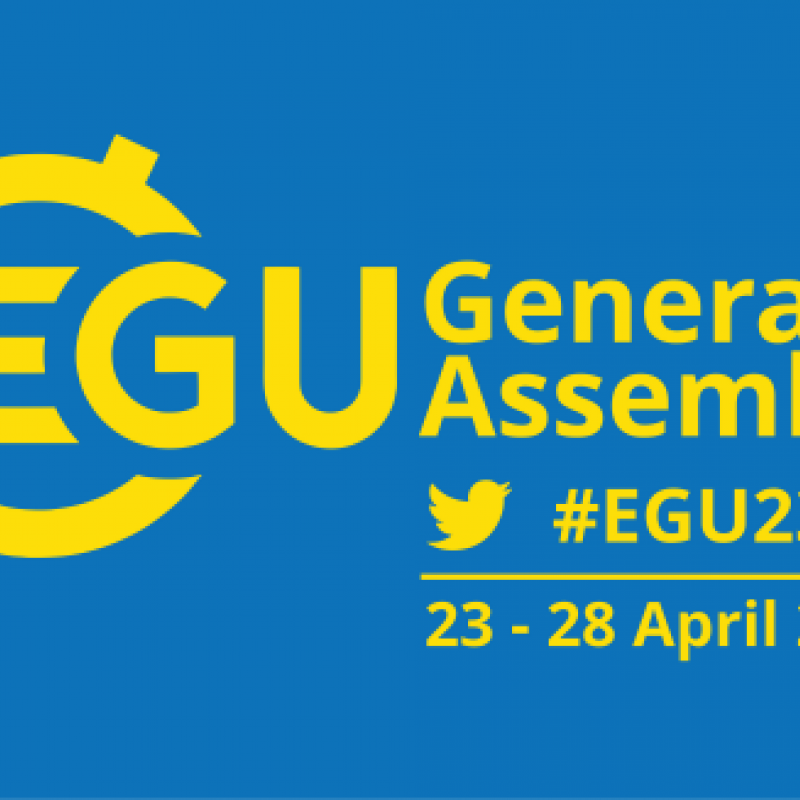Scientists from the CoCO2 project have contributed to a new synthesis of emissions for methane (CH4) and nitrous oxide (N2O) for the European Union and the United Kingdom. The results, published in Earth System Science Data, compare estimates from bottom-up (BU) and top-down (TD) approaches for the European Union and UK (EU27 + UK), and updates earlier syntheses (Petrescu et al., 2020, 2021). While currently comparisons between CH4 and N2O atmospheric inversion estimates and National Greenhouse Gas Inventories (NGHGIs) is highly uncertain because of the large spread in the inversion results, the study concludes that atmospheric inversions inferred from observations represent the most independent data against which inventory totals can be compared. Expected improvements in the modelling of atmospheric transport and natural surface fluxes, together with more and better observations, are likely to bring the atmospheric inversions to a mature tool for verifying emission inventories for CH4, N2O and other GHGs in the coming years.

While most of this study is based on results from the VERIFY project, CoCO2 is already preparing the next update of this annual synthesis. Results for CO2 fossil fuel emissions and CO2 land fluxes are already online, and those for CH4 will follow soon. Once the results are consolidated, new synthesis papers will be submitted for peer review. Roxana Petrescu, lead author and co-leader of CoCO2 Work Package 8, stated: “Our current analysis shows what is officially reported by European countries and how these estimates relate to alternative methods (process modelling and inverse modelling) developed by the scientific community. Knowledge of GHG fluxes, their spatial and temporal variability and attribution to natural or anthropogenic sources is essential for monitoring emission mitigation efforts under the Paris Agreement and to inform its Global Stocktake. The efforts within the VERIFY and CoCO2 projects will move us to an increasingly mature routine monitoring.”
More info is available from CoCO2 partner Vrije Universiteit Amsterdam.



